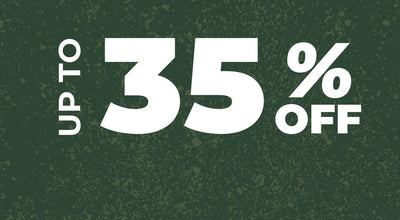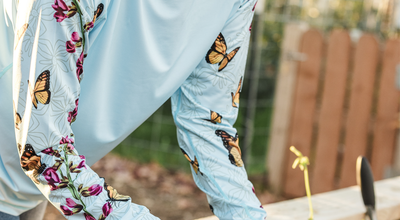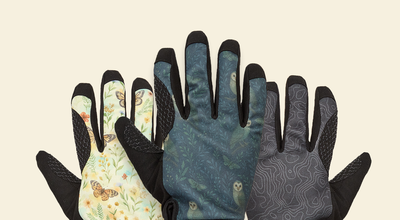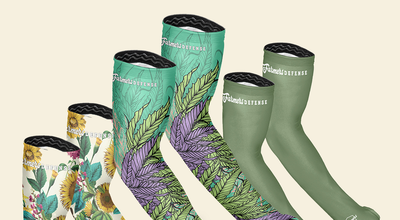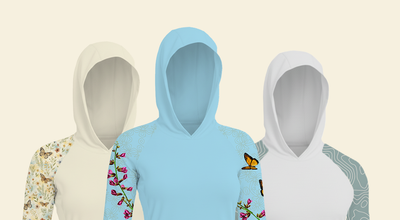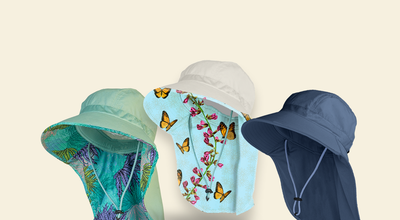How to Choose the Best Arm Sleeves for Protection Outdoors
It seems that everywhere you look these days, someone’s wearing an arm sleeve. From the NBA Playoffs and the Tour de France to a construction worker on the job site and your next-door neighbor in the garden, someone somewhere is wearing one. And what was once solely a utility piece for athletes, arm sleeves have found function far beyond the basketball courts and golf courses. Arm sleeves aren’t typically the first thing we think of when protecting our skin from the elements.
There are many different types of sleeves out there, from compression for athletic use to non-compressive for comfort and protection from the sun and other elements while working. A common use for arm sleeves is sun protection and body temperature regulation. Cooling arm sleeves ideally cover the maximal amount of skin surface area possible. It may seem that a sleeve will warm things up on a warm day, but an arm sleeve with a moisture-wicking design can allow your skin to breathe while keeping skin cool and dry.
Arm sleeves have become more than just a fashion statement; they're a functional accessory for athletes, gardeners, and outdoor enthusiasts. Whether you're looking for compression sleeves for high-impact sports or sun protection sleeves for gardening, this guide will help you find the best arm sleeves for your needs.

There are a ton of factors to take into consideration when choosing the best arm sleeves for you, so we’ve created a list of some essential factors to make things easier:
Intended Use
First, we’ll start with the most significant determining factor: the intended use.
The best arm sleeves will depend significantly on their desired use. A tighter, compressive sleeve will likely serve you best if the goal is to add support to muscles and tendons. There is scientific evidence supporting using a compression sleeve when participating in many athletic events.
If the intended use is working outdoors in the sun, such as with plants and potential skin irritants in the garden, then sleeves with a comfortable fit and maximum skin coverage are ideal.
Check out the best sleeves for gardening.
Compression vs. Non-Compressive Sleeves
- Compression Sleeves: Ideal for muscle support during athletic events, compression sleeves aid in muscle performance. They hold the muscles tight but can restrict flexibility and range of motion.
- Non-Compressive Sleeves: Perfect for those who need protection without the tightness, non-compressive sleeves offer comfort and skin coverage without causing abrasions or other issues.
The best arm sleeves will depend significantly on their desired use. A tighter, compressive sleeve will likely serve you best if the goal is to add support to muscles and tendons. There is scientific evidence supporting using a compression sleeve when participating in many athletic events.
If the intended use is working outdoors in the sun, such as with plants and potential skin irritants in the garden, then sleeves with a comfortable fit and maximum skin coverage are ideal.
Some studies suggest that compression sleeves aid in muscle performance. And while this is good for athletes, it can be a disadvantage for those searching for sleeves that allow more flexibility and range of motion. The compression holds the muscles in the body tight but, in some cases, can make it more difficult for you to move.
Whether the arm sleeves are best for compression or not is based on your personal needs. Compression might be the way to go if high-impact sports and athletics are your primary purpose in using an arm sleeve.
As far as non-compression arm sleeves go, there are many situations when you want the benefits of having sleeves, but compression isn’t suitable for you. The effects of compression sleeves can be damaging for some, causing abrasions and other issues.

Best UV Protection Possible
If exposure to the sun is one of the reasons for covering your arm in a sleeve, the best choice will be an arm sleeve with high a high UPF rating.
UPF is a rating scale that indicates how much UV radiation a fabric allows to reach the skin. For example, a fabric with a UPF 50+ can block 98 percent of the sun’s rays or more. This type of protection blocks both UVB and UVA rays.
All fabrics, in essence, have some level of UPF, but not all fabrics are created equal. Understanding the factors that go into UPF rating helps us differentiate between fabrics and ultimately choose the best option.
If the arm sleeve manufacturer doesn’t mention UPF protection, knowing exactly how much protection the sleeve provides from UV rays is nearly impossible.
The best part about using an arm sleeve with UPF protection is that there’s no to apply and reapply SPF sunscreen to the covered skin.
Cooling Arm Sleeves for UV Protection
Regardless of how they’ll be used, the best arm sleeves for you will be the most functional while giving you some level of comfort. When working on a project outdoors or in the garden, long-sleeved shirts may effectively protect the skin from the sun, but they often leave us a little hot and sweaty. For this reason, arm sleeves are advantageous.
A denser, tighter fabric constructed from a polyester and nylon blend with moisture-wicking qualities offers breathability and often works best. These materials stay dry and cool, and they typically protect sensitive and thin skin from scratches and sun exposure.
Comfort is a big factor in selecting arm sleeves. They may pinch or slide out of place if the sleeves don't fit properly because of sizing issues. The best sleeves for you will be nonrestrictive and do not bunch.
If exposure to the sun is a concern, cooling arm sleeves with a high UPF rating are the best choice. UPF 50+ fabric can block 98 percent of UVB and UVA rays, providing the best UV protection possible. Look for moisture-wicking design and breathable fabric to keep your skin cool and dry.
Material Considerations: Polyester and Nylon Blend
The best arm sleeves for comfort and material are often made from a polyester and nylon blend. This denser, tighter fabric offers breathability and protects sensitive skin from scratches and sun exposure.
Choosing Arm Sleeves for Specific Uses
Best Sleeves for Gardening and Outdoor Work
For gardening or outdoor work, sleeves with a comfortable fit and maximum skin coverage are ideal. They protect against sun exposure and skin irritants, offering effective arm sleeves for various tasks.
Arm Sleeves for High-Impact Sports
If athletics is your primary purpose, compression might be the way to go. Some studies suggest that compression sleeves enhance muscle performance, though they may limit flexibility and range of motion.
Sizing, Comfort, and Fit
Sizing and fit are essential when choosing your arm sleeves. Too loose, and they'll slide out of place; too tight, and they can cut off circulation. The best sleeves will be nonrestrictive and do not bunch, ensuring comfort throughout the day.
Having the right fit is essential when choosing your sleeves. They’ll likely slide out of place if they're too loose, potentially getting in the way and becoming a nuisance. Conversely, if the sleeves fit too tightly, they can become uncomfortable and even cut off circulation.
Arm Sleeves with UPF Protection
Understanding the UPF rating helps differentiate between fabrics and choose the best UV protection sleeves. If the manufacturer doesn't mention UPF protection, knowing the exact protection level is nearly impossible. Always look for a high UPF rating for the best sun protection.

Arm Sleeves Are Effective!
Arm sleeves are more than a fad; they’ve become a staple in many areas of life, work, and athletics. The functionality of arm sleeves is many. Whether through cooling or regulating body temperature, protecting skin from irritating and harmful elements to adding compression for intense training and exercise, it is worth adding arm sleeves to the list of essentials, especially when working in the sun.
Frequently Asked Questions (FAQs)
1. What are the benefits of wearing compression sleeves?
Compression sleeves provide muscle support and can aid in muscle performance during high-impact sports. They may also enhance recovery by improving blood circulation.
2. How do I choose between compression and non-compressive sleeves?
Choose compression sleeves if you need muscle support for athletics. Opt for non-compressive sleeves if you want comfort, skin coverage, and protection without tightness.
3. Can arm sleeves really protect against UV rays?
Yes, arm sleeves with a high UPF rating can block a significant percentage of UVB and UVA rays, providing the best UV protection possible. Look for sleeves with a UPF 50+ rating for maximum protection.
4. What materials are best for cooling arm sleeves?
A blend of polyester and nylon with moisture-wicking design offers breathability and keeps the skin cool and dry. These materials are often used in cooling arm sleeves.
5. How do I ensure the proper sizing and fit of arm sleeves?
Measure your arm and follow the manufacturer's sizing guide. The best sleeves should fit snugly without being too tight or too loose.
6. Are arm sleeves suitable for gardening and outdoor work?
Yes, arm sleeves are effective for gardening and outdoor work. They offer protection against sun exposure and skin irritants, making them ideal for various outdoor tasks.
7. Can I wear arm sleeves even if I'm not an athlete?
Absolutely! Arm sleeves are versatile and can be used for various purposes, including sun protection, body temperature regulation, and protection from scratches and abrasions.
8. How do I care for my arm sleeves?
Follow the care instructions provided by the manufacturer. Most arm sleeves can be machine washed and air-dried.
9. What's the difference between UPF and SPF in arm sleeves?
UPF (Ultraviolet Protection Factor) is a rating for fabrics and indicates how much UV radiation is blocked. SPF (Sun Protection Factor) is used for sunscreens. Arm sleeves with a high UPF rating provide long-lasting protection without the need to reapply sunscreen.
10. Can arm sleeves cause any harm or discomfort?
If improperly sized, arm sleeves can cause discomfort or even cut off circulation. Always choose the right size and material for your needs, and avoid overly tight compression if it's not suitable for your activities.

